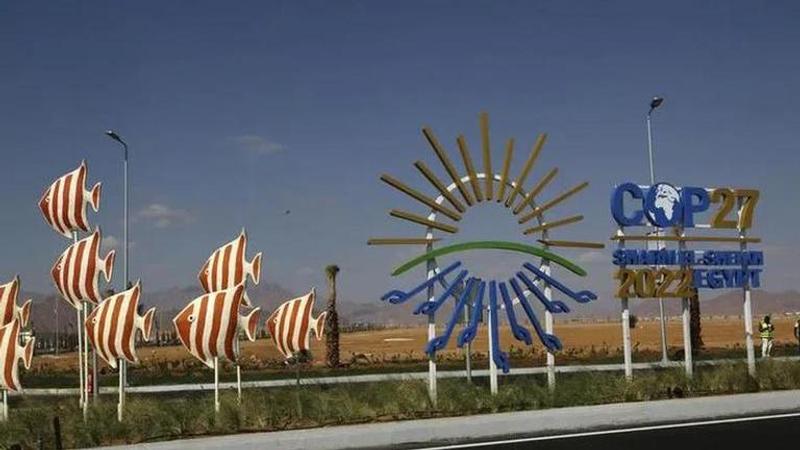Published 18:49 IST, November 13th 2022
Effects of climate on agriculture prominent at COP27
Farmers attending the United Nations climate summit in Egypt have described new challenges and problems they are experiencing as a result of climate change.

Farmers attending the United Nations climate summit in Egypt have described new challenges and problems they are experiencing as a result of climate change.
Farmer Kati Partanen says climate change has brought a longer growing season to her farm in Finland. This may have brought new plant varieties, but it has also brought new weeds, pests and diseases to her plants.
Earlier this year, Sabrina Elba, UN Goodwill Ambassador for the International Fund for Agricultural Development, went to Kenya and Somalia where she saw how farmers were coping.
"They're living this reality day-to-day. For real people, this is every day," she said "For them, it's a matter of life and death. It's to adapt or starve."
Matthias Berninger, senior vice president of public affairs, science and sustainability at Bayer, said they're working on climate smart solutions to make crops more resilient.
This includes shorter corn crops to withstand extreme storms and a cassava seed with RNAI technology that prevents the plant from contracting a virus from white flies, which have increased because of climate change.
Berninger said the new resilient cassava seed would provide harvest food for sub-Saharan African communities who also wouldn't need to use pesticides.
Ertharin Cousin, former executive director of the United Nations World Food Program, noted that the declaration at the end of last year's climate summit in Glasgow did not include a single world on food, agriculture or water.
She hoped this would change in Egypt.
"We can't leave here without a declaration that embraces the sense of urgency and the interventions that are necessary based on science to ensure that we don't miss the 1.5 target. Our food system, our agriculture system is a system most vulnerable to the impact of the climate crisis. But it's not the system that's vulnerable. It's the people, and we can't forget that," she said.
Climate change is exacerbating the loss of arable land as temperatures rise and rainfall becomes more irregular.
Described by the United Nations' desertification agency as one of the greatest threats to human society, it's estimated that over 40% of the world's land is already degraded.
Around 1.9 billion hectares of land, more than twice the size of the United States, and roughly 1.5 billion people globally are affected in some way by desertification, according to U.N. estimates.
Updated 18:49 IST, November 13th 2022




